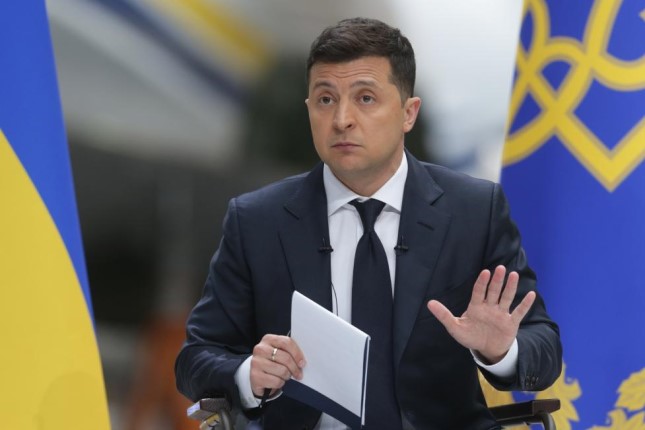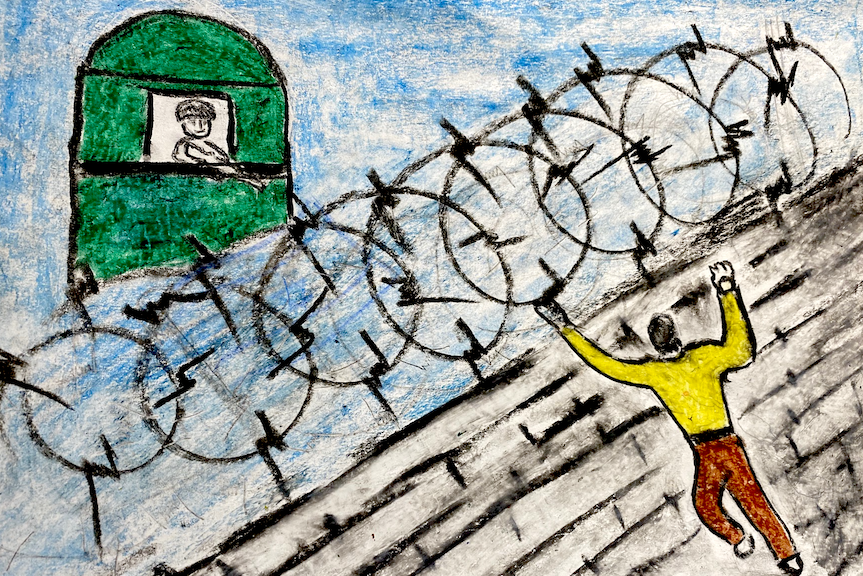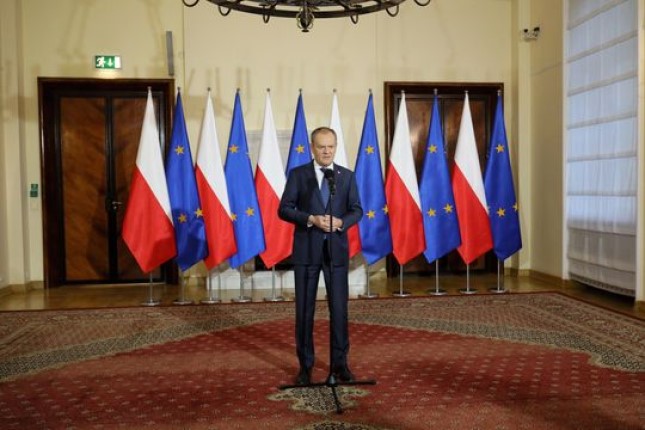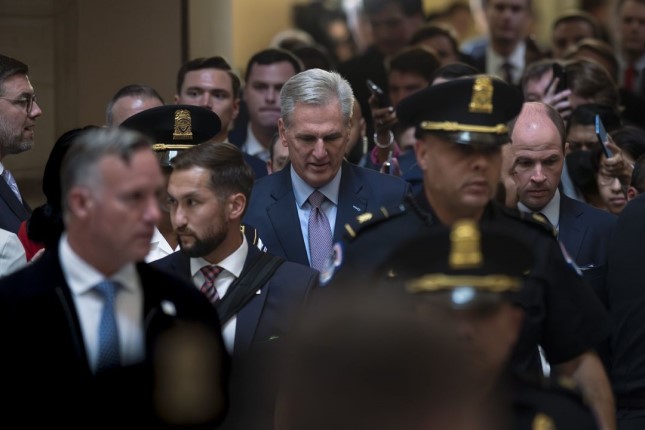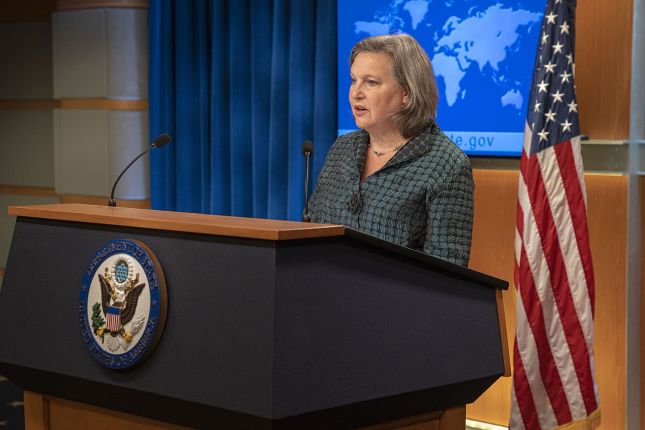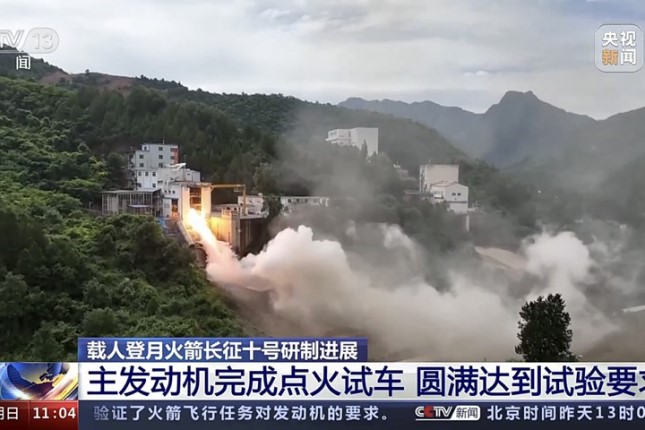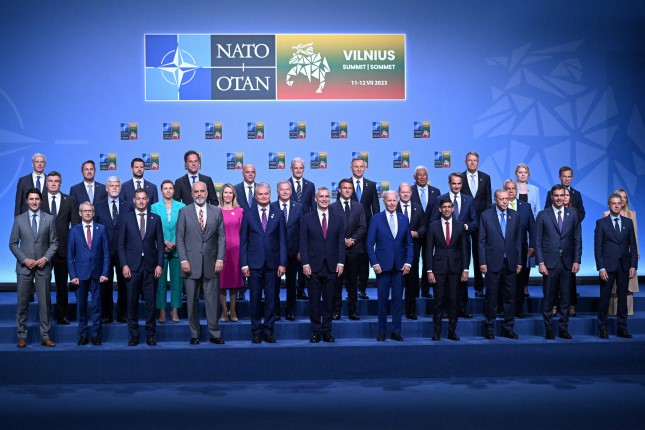Zelensky has made it difficult for himself to get out of the picture he felt he needed to paint to get Ukraine through the war. To maintain the support of Ukrainians and of Ukraine’s partners in the political West, Zelensky promised, not only that Ukraine would reclaim its territory up to its prewar borders, but that it would claim all its territory to its 2014 borders, including the Donbas and Crimea. He also promised – even decreed – that Ukraine would not negotiate with Russian President Vladimir Putin. Both promises now make it very difficult for Zelensky to negotiate an end to the war. And were he to try, the same ultra-right nationalists who persuaded him off his campaign peace platform are there to persuade him from returning to it.
Zelensky now finds himself fighting a war on two fronts: one a military one on the battlefield against Russia and one a political one in Kiev. Both are becoming more difficult.
In a war that is being fought largely on the US and NATO’s insistence that Ukraine not surrender the right to join NATO, Zelensky has recently had to admit both that “unfortunately, we did not achieve the desired results [in the counteroffensive]. And this is a fact” and that he doesn’t know if Ukraine will ever be allowed to join NATO.
Once untouchable, Zelensky’s political situation in Ukraine is becoming more threatening. “A prominent MP” in Zelensky’s party has said that political “jostlings [have] already made Ukraine ‘unstable’,” according to reporting in The Economist. Zelensky, according to the report, has attempted to “shut down dissent” by “centralis[ing] decision making.” But the strategy is “having the opposite effect.”
Kiev Mayor Vitali Klitschko says that Ukraine is becoming more authoritarian and that “At some point we will no longer be any different from Russia, where everything depends on the whim of one man.” Former Minister of Internal Affairs and ex-Prosecutor General of Ukraine Yuriy Lutsenko has reported much the same, accusing Zelensky of “rul[ing] as a sole decision-making autocrat” who “makes decisions alone.”
Once lionized and seen as untouchable, Zelensky’s carefully managed public image is beginning to tarnish. A recent USAID funded poll conducted by the International Republican Institute found that 42% of Ukrainians strongly approve of Zelensky compared to 58% in April. And while 72% of Ukrainians trust Zelensky, 82% trust the commander-in-chief of the Ukrainian Armed Forces, General Valerii Zaluzhny. Internal polling seen by The Economist suggests a bleaker picture still, showing mid-November trust for Zelensky falling to 32% with Zaluzhny’s numbers still at 70%. Zaluzhny has not declared an intention to run for president, but if there were an election today – there won’t be – Zaluzhny would beat Zelensky with 44% of the vote versus 38%.
But Zelensky’s biggest problem with Zaluzhny is not political. Perhaps more dangerous is the battle taking shape between Zelensky and his Zaluzhny-led generals. The battle became public over an interview Zaluzhny gave The Economist in which he said the war had become a positional war, a long war of attrition that favored Russia. The war, he said, was a “stalemate.” “There will most likely be no deep and beautiful breakthrough.” Zelensky publicly rebuked Zaluzhny and told him to stay out of politics. The Economist reports that “Relations between President Volodymyr Zelensky and his commander-in-chief Valery Zaluzhny are understood to be terrible.”
A member of Zelensky’s party, Maryana Bezuglaya, who is the deputy head of the Verkhovna Rada Committee on National Security and Defense, recently called for Zaluzhny to resign. Unconfirmed stories swirl in Ukraine that the military would side with Zaluzhny if Zelensky removed him.
Zelensky has recently fired several generals who are closely associated with Zaluzhny, including General Viktor Khorenko, the commander of Ukraine’s special operations forces; Major General Tatiana Ostashchenko, the head of medical forces; and four deputy commanders of the National Guard. Zaluzhny, did not request Khorenko’s dismissal . The New York Times reports that “It was unclear whether General Zaluzhny, the overall commander of Ukraine’s forces, knew in advance of the planned dismissal” and that “[t]he firing appeared to undercut General Zaluzhny’s authority.”
The Kyiv Post reported on December 4 that Zelensky is allegedly bypassing commander-in-chief Zaluzhny and communicating directly with subordinate commanders in the Ukrainian Armed Forces. Those communications are reportedly “undermining” Zaluzhny.
Zelensky now seems to be having trouble managing the military war on the battlefield and the pollical war in Kiev. The same skills that helped him lead Ukraine through the war, may get in the way of his leading Ukraine out of the war. Zelensky may have passed his best before date.
Source: AntiWar.
